Although Brussels sprouts may look like miniature cabbages, they have a distinctive taste which bursts with the nutritious deliciousness of green vegetables.
The compact buds' attributes in a 1-cup serving include:
- 56 calories;
- 1 gram of fat;
- 4 grams of dietary fiber;
- 4 grams of protein;
- 24 percent of recommended daily amounts apiece of vitamin A and folate;
- 162 percent of RDA for vitamin C.
Worldwide popular cooking methods favor:
- boiling,
- roasting,
- sautéing, and
- steaming.
Over-boiling has the significant disadvantage of diminishing the efficacy of the vegetable's anticancer compounds. Also, overcooking grays the buds and releases distastefully strong flavors and odors that derive from a sulfurous compound, glucosinolate sinigrin, and that are off-putting.
Marking a cross on each bud is considered to encourage even penetration of heat.
Brussels sprouts enjoy a positive reputation in the cuisine of the Czech Republic, where a favorite, basic recipe easily and quickly revs flavor through blending in a cream sauce.


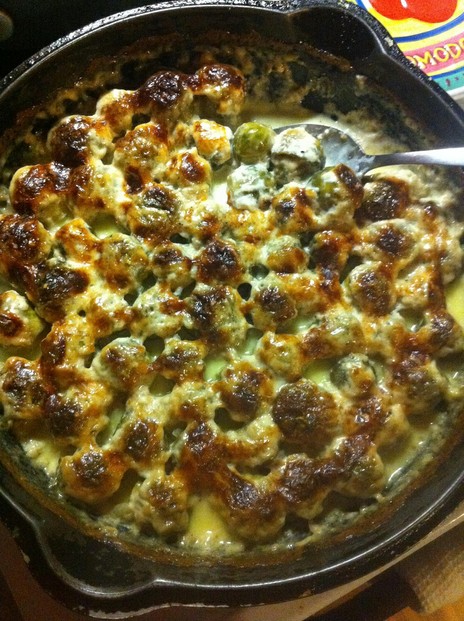
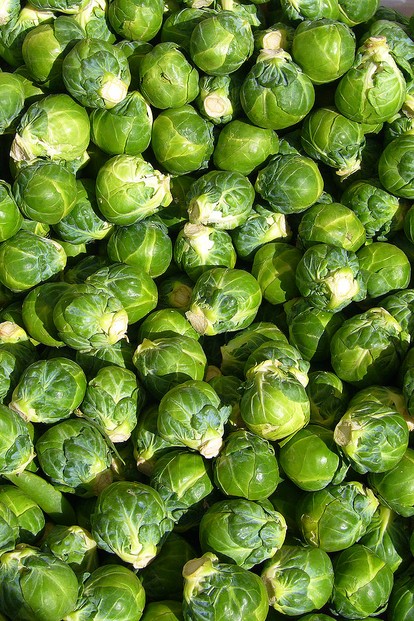


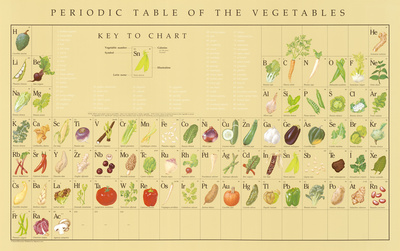

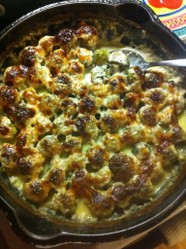

 Are Hawaiian Huakai Po Nightmarchers Avenging Halloween Thursday?on 10/02/2024
Are Hawaiian Huakai Po Nightmarchers Avenging Halloween Thursday?on 10/02/2024
 Mailing Addresses for 2023 Form 4868 Extending 1040 and 1040SR April 15, 2024, Due Dateon 04/15/2024
Mailing Addresses for 2023 Form 4868 Extending 1040 and 1040SR April 15, 2024, Due Dateon 04/15/2024
 Mailing Addresses for 2023 Forms 1040 and 1040SR Filed in 2024on 04/15/2024
Mailing Addresses for 2023 Forms 1040 and 1040SR Filed in 2024on 04/15/2024
 Mailing Addresses for 2022 Form 4868 Extending 1040 and 1040SR April 18, 2023, Due Dateon 04/13/2023
Mailing Addresses for 2022 Form 4868 Extending 1040 and 1040SR April 18, 2023, Due Dateon 04/13/2023


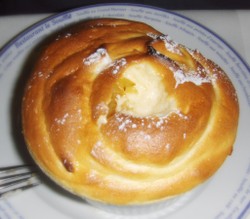
Comments
katiem2, Thank you for the revisit. I'm sorry to hear about the continued migraines from your traumatic accident.
Greens abound with vitamin K, whose levels you have to monitor if you have post-traumatic blood issues that used to warrant Coumarin.
Do you know about Donna Eden and energy healing? Her book lists pressure points for easing pain. Also I use the Ortner siblings' tapping solutions.
Derdriu, Good to hear this about green foods impact on headaches, I too get headaches, rather migraines as result of head trauma from auto accident.
katiem2, Thank you for the visit and the appreciation. I love the recipe because headaches that I get from an accident are relieved by eating green (vegetables, that is, not green desserts on Saint Patrick's Day). Thank you for the information about sauteing in olive oil with cranberries: that sounds good for Thanksgiving.
Sounds wonderful, I love brussel sprouts, I like to saute them in olive oil with cranberries. I bet the cheese addition to brussel sprouts would be a welcome addition at holiday dinners.
Margielynn, It's great that your family loves delicious, nutritious Brussels sprouts. My family recipe indeed is scrumptious. For those recipes that have not been preserved from my Czech lines, I pull out my copy of The Czechoslovak Cookbook, which is authentic, easy, and highly regarded.
My family loves Brussels sprouts, this recipe sounds delish! Thanks so much for sharing!
candy47, Me too, it's the cream base that makes or breaks recipes such as this. I admit to using select canned soups just as canned soups from time to time, but never in a recipe and only under the rarest of circumstances.
I love the cream base in this recipe. So many creamed recipes start with a canned soup base. I don't use canned soup, for any reason.
Me too, I agree that research needs to be conducted.
Problems with one indeed can be indicative of stress with them all since Brassicas are low in soluble fiber and high in insoluble fiber.
Additionally, there is the effect upon the digestive equation of the individual's internal pH, sphincter closing/opening, and serving preferences. For some, the problem apparently lies in general unappealability of the look, smell and taste of Brassicas. For others, it may be the ingredients within the Brassica dish (particularly as a soup) or the items (particularly caffeines and fats) after, before, or with which it is served.
For still others -- and this explains the help that a sprinkle of vinegar can give to those who find Brussels sprouts consumption problematic -- it results from off-kilter pH (for example, not quite up where it should be in the acidic range or a bit beyond where it should be in the alkaline).
It is not common knowledge that sprouts, kale, cabbage, cauliflower, broccoli and calabrese are all the same species, the very genetically varied Brassica oleraceae. So if someone has digestive difficulties with sprouts, does he also have difficulties with others of this species or is this peculiar to sprouts?
The information of adding balsamic vinegar to the stock is very interesting. Brassicas like more lime in the soil than many other vegetables do, pH 7 as opposed to 6-6.5, but vinegar is acid and therefore a chemical that neutralizes lime. I cannot be sure that there is a significance to this, but this might indicate the general reason for the problem that people with difficulties digesting sprouts have. But research would be needed